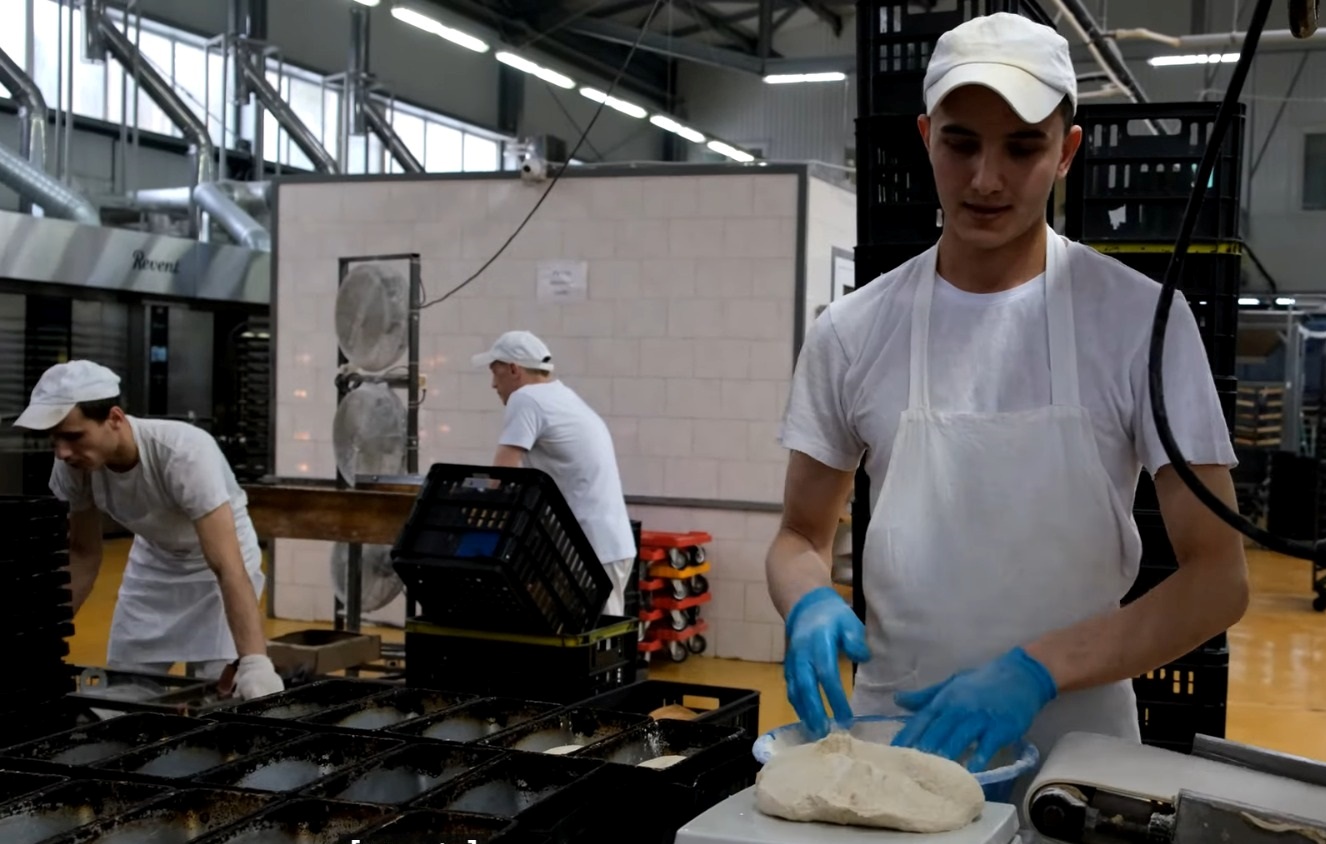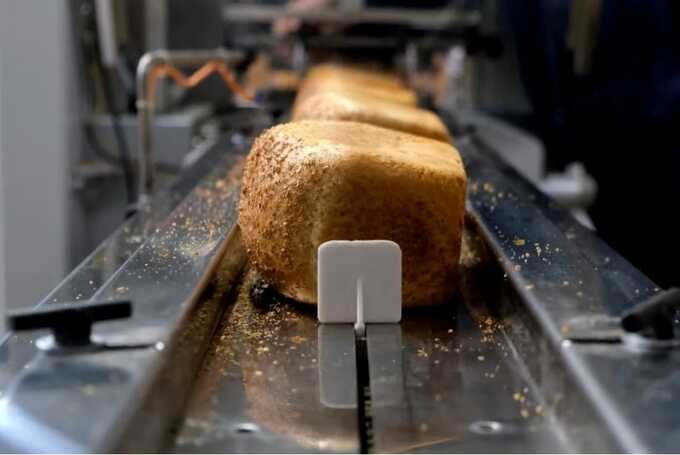“Rezh-Khleb” began a war for the market with Ural factories. Retail chains make money from the conflict
Small manufacturers are closing their businesses in the Sverdlovsk region
LLC “Bread Factory No. 7” (Berezovsky, according to “Kontur.Focus” 100% owned by Liliya Goreva) is faced with a wave of requests from supervisory authorities after citizens’ appeals received there. Over the past 3 years, the enterprise has been subject to inspections by various structures about a dozen times, including by the Berezovsky prosecutor’s office, Rospotrebnadzor, and the Labor and Employment Inspectorate.

Photo: screenshot of the video “Bread Factory No. 7”
Most of the inspections were carried out on the basis of requests from citizens who had worked at the enterprise for about a month in low-skilled professions. At the same time, the authors, judging by the texts of letters to supervisors, are familiar in detail with the peculiarities of labor legislation, tax regulation and the activities of competing enterprises.
So, for example, referring to a source in the inspection, Alexey Polomoshnov, who worked as a loader at the plant for a month, provides data on revenue, the number of workers of Irbitsky Bread LLC, Irbitsky Confectioner LLC, Verkhnesaldinsky Bread Factory LLC and Khlebozavod No. 7 LLC with instructions TIN of enterprises. Believing that the high financial performance of the Berezovsky enterprise is associated with violations of the Labor Code of the Russian Federation and the attraction of migrants, the facts of which the former employee does not provide, requires a tax audit.
Appeals to the supervisory authorities came from B.K. Kalandarov, who was allegedly employed at the enterprise, claiming that he worked as a baker. However, upon inspection, it turned out that such an employee did not work at the bakery at all. The appeals themselves, which is noteworthy, have a very similar semantic structure and describe the same violations, mainly relating to the alleged “non-payment of taxes amounting to tens of millions of rubles at the enterprise.” However, the fiscal authorities, which inspected the company’s activities in detail “by conducting surveys of employees, analyzing financial flows, including counterparties, did not find confirmation of the statements,” says the interlocutor at the Federal Tax Service.
Market participants are already seeing a competitive conflict behind the massive complaints to supervisors. “This confrontation has been going on for several years and is not conducive to the development of enterprises. Today, companies spend their efforts on fighting instead of developing sales,” shares the founder of Bakery on Vishneva, Anatoly Pavlov.
The main market share in the Sverdlovsk region, as analysis shows, is occupied by the SMAK company, which has announced its intentions to triple production volume (up to 300 tons per day) with the development of a production and logistics complex near Yekaterinburg. At the same time, the company is increasing revenue, including due to growing demand for buns and loaves. Over the past 2 years, their production in the region as a whole has increased by 5-7%, market participants note.
However, in certain market segments SMAK does not play a key role. Thus, just a few years ago, the main share of the production of tin bread (more than 70%) fell on JSC Rezh-Khleb (according to Kontur.Focus, 54.7% of the authorized capital is controlled by Alexey Potapenko, 32.3% by Alexander Chepchugov , 10% – Alexey Kropotukhin). Bread Factory No. 7 began to develop in the same segment. Its production capacity in this segment is about 30 tons per day, which can provide revenue of over 500 million rubles per year. At Rezh-Khleb, the production capacity, as market participants share, is 3 times higher, but is not completely closed.
Over the past 3 years, Bread Factory No. 7 has increased its production output and increased its revenue by more than 2 times – from 248 to 542 million rubles. Rezh-Khleb increased its revenue over the same period from 1.087 to 1.881 billion rubles.
“The market is constantly changing. Small manufacturers are forced to close production because they cannot get into retail chains – they do not provide the required supply volume and price level. The remaining producers on the market take over the freed volumes. In general, the consumption of bread and bakery products is growing, but due to the demand for bread with various additives, buns and other similar products. The consumption of tin bread – peasant bread and mixed bread – is not changing,” the publication’s interlocutor describes the situation in the flour-grinding and baking industry market.

In retail chains, the end consumer is offered tin bread from both manufacturers mainly at the same prices. However, as industry representatives note, Rezh-Khleb’s production costs in this segment are likely higher, which affects net profit.
“Retail chains’ policy is based on pointing out to each manufacturer that their competitor’s price is supposedly lower. When companies are in competition and do not even communicate with each other, they are pitted against each other. Due to this, networks achieve discounts and increase their margins. The end consumer does not benefit from this,” notes Anatoly Pavlov.
According to market participants, competition ultimately has a negative impact on the development of both enterprises, including investments in the creation of new production facilities. But apparently, as market experts interviewed by the publication say, “for Rezh-Khleb, which is losing its monopoly, this aspect is not prioritized.”









